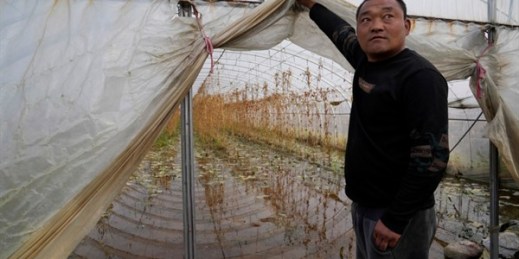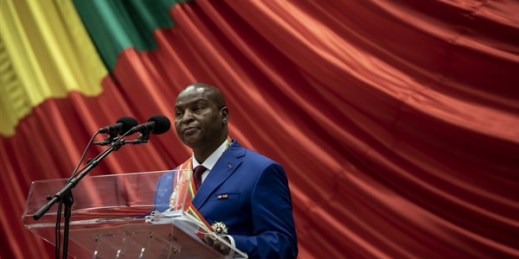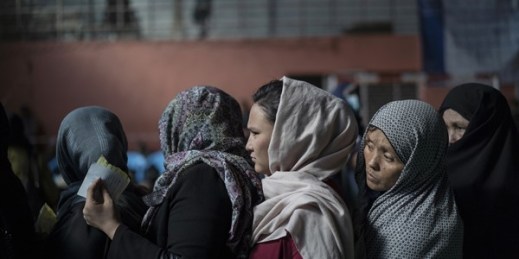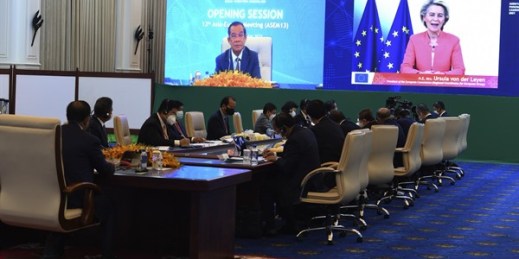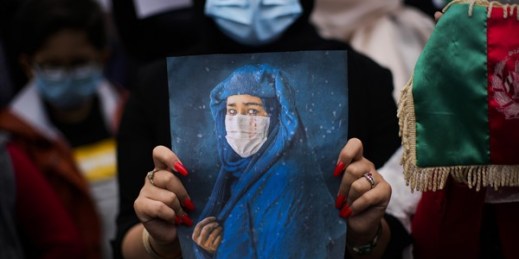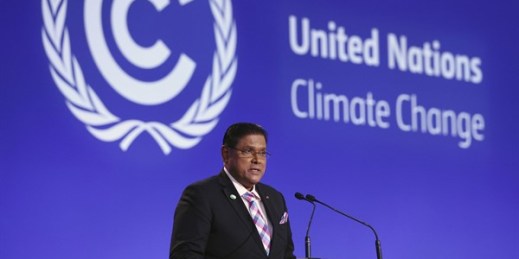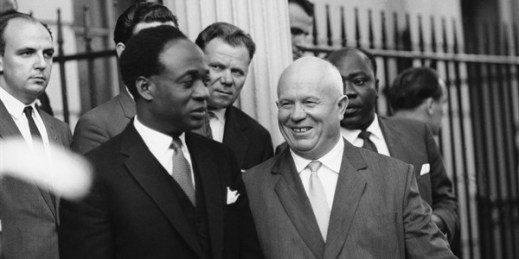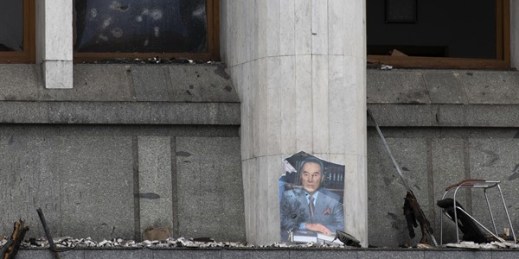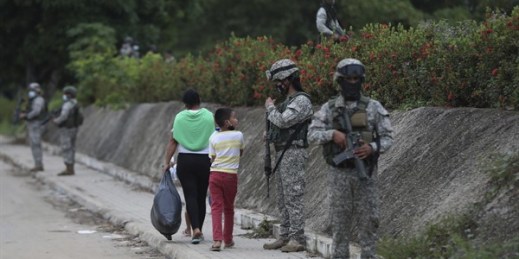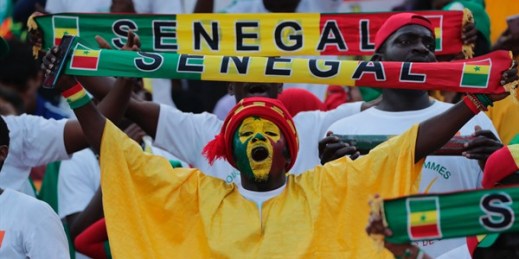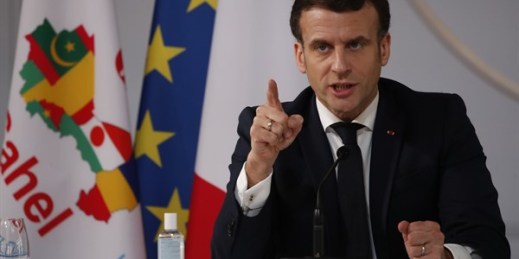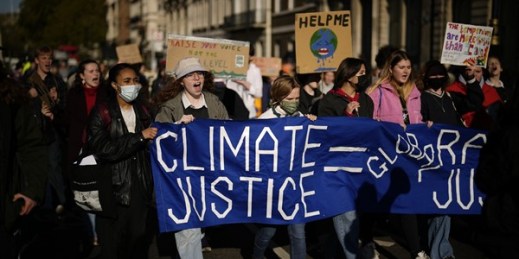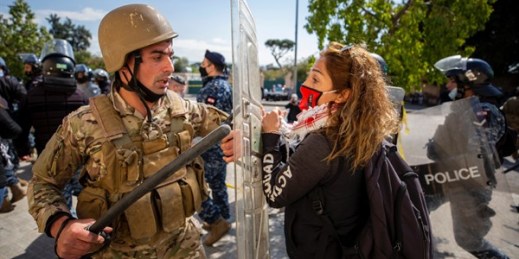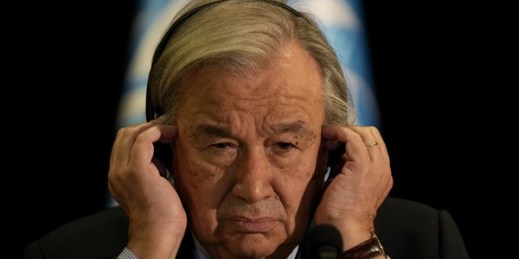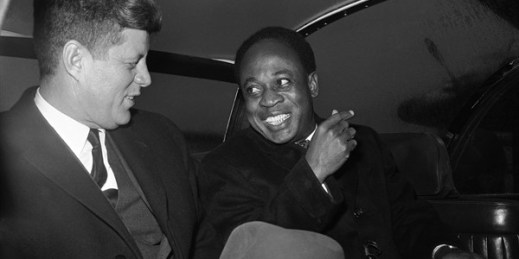
Anyone with even a sketchy understanding of the Cold War knows that it was a time not only of intense direct competition between the reigning superpowers, but also of grand schemes by both the U.S. and USSR for integrating their allies and clients into adversarial blocs, as well as for poaching the partners of the rival power—especially in the developing world—into their own camp. Throughout much of this era, the West regarded professions of neutrality among poorer countries with skepticism or even outright hostility. Beginning with the Eisenhower administration, the view took hold in Washington that non-alignment was just a […]

